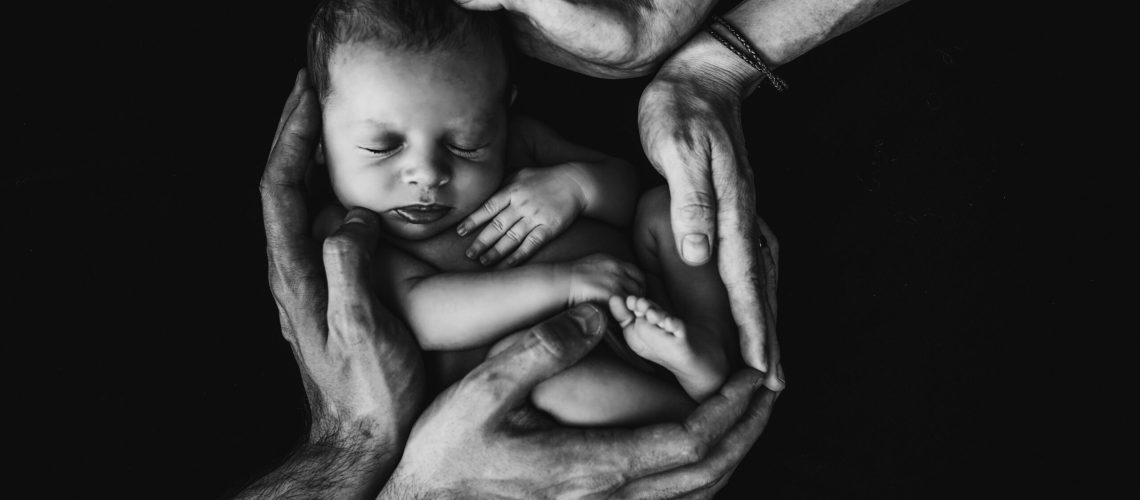Postnatal depression (PND) and postnatal anxiety (PNA) are significant mental health challenges that extend far beyond the ‘baby blues’ commonly discussed in the context of new parenthood.
While the baby blues are typically brief and mild, PND and PNA are more intense and enduring, significantly impacting the wellbeing of new mothers. Recognising the seriousness and prevalence of these conditions is crucial, as they affect a substantial number of women, yet often remain underdiagnosed and misunderstood.
At Happy Minds Psychology, we are dedicated to supporting new mothers facing these challenges. Our goal is not only to provide therapeutic support but also to increase awareness and understanding within the community, ensuring that every mother feels supported and empowered to seek help.
Understanding Postnatal Depression and Anxiety
Postnatal Depression (PND) and Postnatal Anxiety (PNA) are clinical conditions that can occur after childbirth. PND manifests with deep, persistent sadness, and a significant low mood that interferes with daily functioning. PNA, on the other hand, is characterised by excessive worry, feelings of overwhelming anxiety, and fear that can be debilitating.
Symptoms that distinguish PND and PNA from normal emotional fluctuations post-birth include:
- Severe mood swings
- Prolonged irritability or agitation
- Panic attacks
- Persistent crying and inability to cope with daily tasks
Triggers and Risk Factors include hormonal changes, the physical and emotional demands of caring for a newborn, previous mental health issues, lack of support, and other stressors. These conditions do not arise from weakness or failure but from a complex interplay of physical, emotional, and environmental factors.
It is essential to demystify and destigmatise these conditions, reinforcing that they can affect any new mother, regardless of her background or birth experience. By doing so, we encourage more women to seek the help they need without fear of judgement.
Signs and Symptoms to Watch For
Recognising the signs of postnatal depression and anxiety is vital for effective management and recovery. Common signs include:
Emotional Symptoms:
- Feelings of sadness or hopelessness that don’t go away
- Lack of interest or pleasure in life
- Excessive worry about the baby or a disproportionate fear of something happening to the baby
Behavioural Symptoms:
- Withdrawal from social interactions
- Changes in appetite – eating much more or much less than usual
- Difficulty bonding with the baby
Physical Symptoms:
- Extreme tiredness or lethargy
- Insomnia or excessive sleeping
- Physical symptoms without a clear cause, such as stomach pains or headaches
Early recognition and understanding of these symptoms are crucial in seeking timely support and treatment.
At Happy Minds Psychology, we stress the importance of awareness and education in identifying these signs in oneself or loved ones, as early intervention can significantly improve the prognosis for new mothers experiencing these challenging conditions.
Coping Strategies and Management
To manage symptoms of postnatal depression (PND) and postnatal anxiety (PNA), embracing self-care is essential. Mindfulness techniques such as meditation can stabilise your mental state by fostering a sense of presence, which is crucial when feelings of overwhelm strike.
Incorporating gentle exercise like yoga or walking not only boosts physical health but also improves mental well-being by releasing endorphins, natural mood enhancers. Nutrition also plays a critical role; a balanced diet rich in omega-3 fatty acids and fibre can positively affect mood and energy levels.
It’s important for new mothers to set realistic expectations about their recovery and adjustment to new routines to help mitigate feelings of inadequacy or frustration.
The Role of Support Networks
Support from partners, family, and friends is crucial in overcoming PND and PNA.
Communicating your feelings and needs might seem daunting but sharing your experiences can enlighten your close ones about how they can provide support. Joining support groups offers a community of individuals who understand what you are going through, providing comfort and practical coping strategies.
Additionally, leveraging community resources such as workshops and informational sessions designed for new mothers can offer additional support and valuable information.
Professional Treatment Options
While self-help strategies are beneficial, some cases of PND and PNA may require professional intervention. Counselling services can offer specialised support and practical advice, tailored to the challenges faced by new mothers.
If symptoms persist or intensify, it is vital to seek professional help, which can provide more comprehensive treatment options and support.
Happy Minds Are Here To Support You
Addressing postnatal depression and anxiety is a significant step toward recovery, and it is vital that no mother has to face these challenges alone.
We urge all mothers experiencing these symptoms to seek support. Whether through community support, engaging in self-care, or seeking professional services, remember that you are not alone in this journey.



